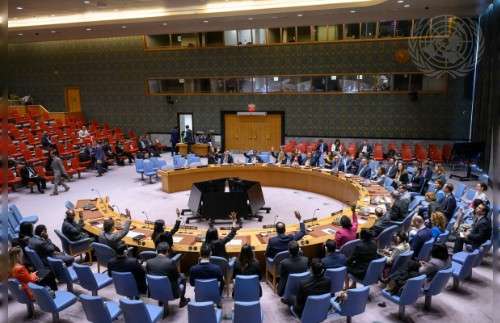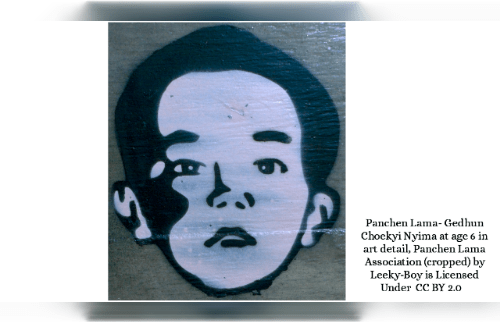Ethnic Uyghurs of Chinese nationality in Saudi Arabia are increasingly seeking asylum in Turkey amid a policy by Beijing to stop renewing their passports, which rights groups say is part of a bid to force them to return home, where they face persecution and detention.
Earlier this week, Agence France-Presse reported that the Chinese mission in Saudi Arabia had stopped renewing passports for Uyghurs “more than two years ago,” and were offering instead one-way travel documents suitable only for passage to China, where some 1.8 million members of Muslim minority groups are believed to have been held in internment camps in the Xinjiang Uyghur Autonomous Region (XUAR).
The new policy has forced the 100-odd members of the Uyghur diaspora in Saudi Arabia to make a choice between returning home, where they are likely to be accused of harboring “strong religious views” and detained, or remain where they are, under constant threat of deportation because of their illegal status.
RFA’s Uyghur Service recently spoke with several Uyghurs in Saudi Arabia who said that many members of their community have fled for Turkey, which has traditionally embraced the Turkic Muslim minority, in part because Riyadh supports China’s “rights to take counter-terrorism and de-extremism” measures, according to Crown Prince Mohammed bin Salman, and could deport them.
Mass incarcerations in the XUAR, as well as other policies seen to violate the rights of Uyghurs and other Muslims, have led to increasing calls by the international community to hold Beijing accountable for its actions in the region, which also include the use of advanced technology and information to control and suppress its citizens
“The number of Uyghur students with Chinese passports studying in Saudi Arabia has become really small,” said Sirajiddin Ezizi, a prominent Uyghur journalist and religious figure in Saudi Arabia.
“It’s not like it was before. They’ve gone off to other places. A lot of them have applied for Turkish papers.”
According to Ezizi, many of the members of the diaspora in Saudi Arabia have been living there for 15 or 20 years and have already taken the steps to obtain Turkish citizenship so that they don’t have to fear possible repatriation to China.
“But there’s a small group of students who are on Chinese passports,” he said, adding that “they’re really struggling right now” because lacking legal status in Saudi Arabia has left them in a state of limbo.
For those without third nation citizenship, he said, there is no guarantee of safety from fleeing to sympathetic countries, citing pressure from China on governments around the world to repatriate Uyghurs seeking asylum.
AFP cited Norway-based Uyghur linguist Abduweli Ayup as saying he had confirmed five deportation cases from Saudi Arabia since 2017, although other Uyghur campaigners say the number is much higher, and RFA has also reported forced repatriations from countries including Egypt and Thailand.
“This isn’t just a fear here—it’s happening in Turkey, throughout the Arab world, even in Europe, there are some instances of sending people back,” Ezizi said.
“It’s not widespread in any one country, but some countries are doing it, for example Pakistan and Kazakhstan. But other than Egypt, none of the Arab countries have sent anyone back.”
A Uyghur woman in Saudi Arabia, who spoke to RFA on condition of anonymity, also said that most of those who have been unable to renew their passports “are going to Turkey.”
“People who can’t go back to [Xinjiang because they fear detention] are going to Turkey,” she said, adding that “things have gotten a bit tighter here” amid the new policy.
Students speak out
RFA also spoke with a Uyghur student in Saudi Arabia who was among a group of students that last year wrote a letter to the Chinese consulate in the western city of Jeddah, asking why it was renewing passports for the ethnic Han community while ignoring their requests.
The letter reportedly said that Uyghurs in Saudi Arabia had “not promoted any type of splittism” and had avoided Chinese politics, while asking that “the government respect our rights and treat us the same way as it treats its countrypeople.”
“We request that they allow us to keep studying—we ask for nothing else from them,” the letter said.
The Uyghur student, who also declined to be named for fear of reprisal, said that passports aren’t being renewed for Uyghurs because “if they really considered Uyghurs to be citizens, they would treat them like everyone else.”
Attempts by RFA to contact the Chinese Embassy to verify the content of the letter went unanswered, but staff there told AFP that they had not stopped consular services for Uyghurs, nor do they “cooperate with Saudi authorities to deport Uyghurs.”
Another Uyghur woman in Saudi Arabia told RFA however, that she had only heard of one Uyghur to get a normal passport renewed instead of a one-way travel document over the past two to three years.
AFP also cited multiple Uyghur sources in Saudi Arabia as saying that they feared visiting the Chinese Embassy as some had had their passports invalidated even before the expiry date.
Camp system

While Beijing initially denied the existence of the camps, China last year changed tack and began describing the facilities as “boarding schools” that provide vocational training for Uyghurs, discourage radicalization, and help protect the country from terrorism.
But reporting by RFA’s Uyghur Service and other media outlets indicate that those in the camps are detained against their will and subjected to political indoctrination, routinely face rough treatment at the hands of their overseers, and endure poor diets and unhygienic conditions in the often overcrowded facilities.
Mass incarcerations in the XUAR, as well as other policies seen to violate the rights of Uyghurs and other Muslims, have led to increasing calls by the international community to hold Beijing accountable for its actions in the region, which also include the use of advanced technology and information to control and suppress its citizens.
Earlier this month, U.S. Defense Secretary Mark Esper said during a speech in Washington that China’s Communist Party “is using artificial intelligence to repress Muslim minority communities and pro-democracy demonstrators.”
“In fact, the party has constructed a 21st century surveillance state with unprecedented abilities to censor speech and infringe upon basic human rights,” he said, comparing it to one featured in George Orwell’s dystopian novel 1984.
Reported by Erkin and Jilil Kashgary for RFA’s Uyghur Service. Translated by Elise Anderson and Alim Seytoff. Written in English by Joshua Lipes.
Copyright © 1998-2016, RFA. Used with the permission of Radio Free Asia, 2025 M St. NW, Suite 300, Washington DC 20036. https://www.rfa.org
UN Security Council Extends Mandate of UNMISS
An Escaped Kangaroo Closes Down Alabama Interstate
Popular Cat Breeds in India
Some Cyber Security Softwares
UN Security Council Meets on Situation in Middle East, Including Palestinian Question
Remote Island’s Brain-Damaged Seabirds Show Far-Reaching Impact of Plastic Pollution
New Zealand Police Stopped Naked Driver
Dog Stories
Subscribe Our You Tube Channel
Fighting Fake News
Fighting Lies

















